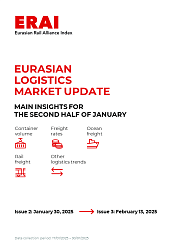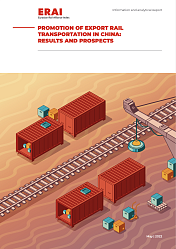Thanks!
We will contact you.


Main insights for the second half of January 2025

Continental routes for the delivery of goods from China to Europe and back over the past decade have come a long way, from test train shipments to the creation of stable, full-fledged railway container transportation routes.